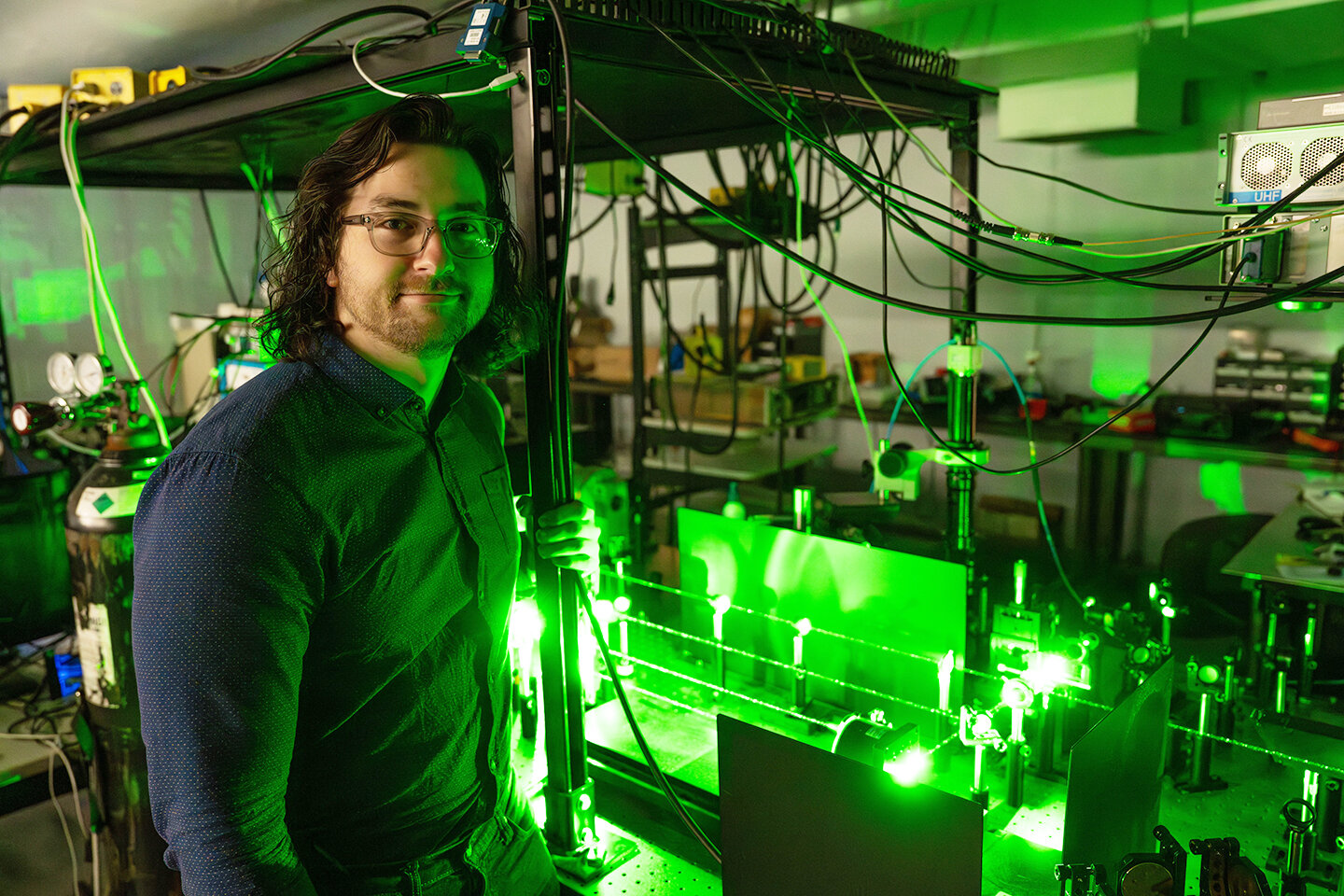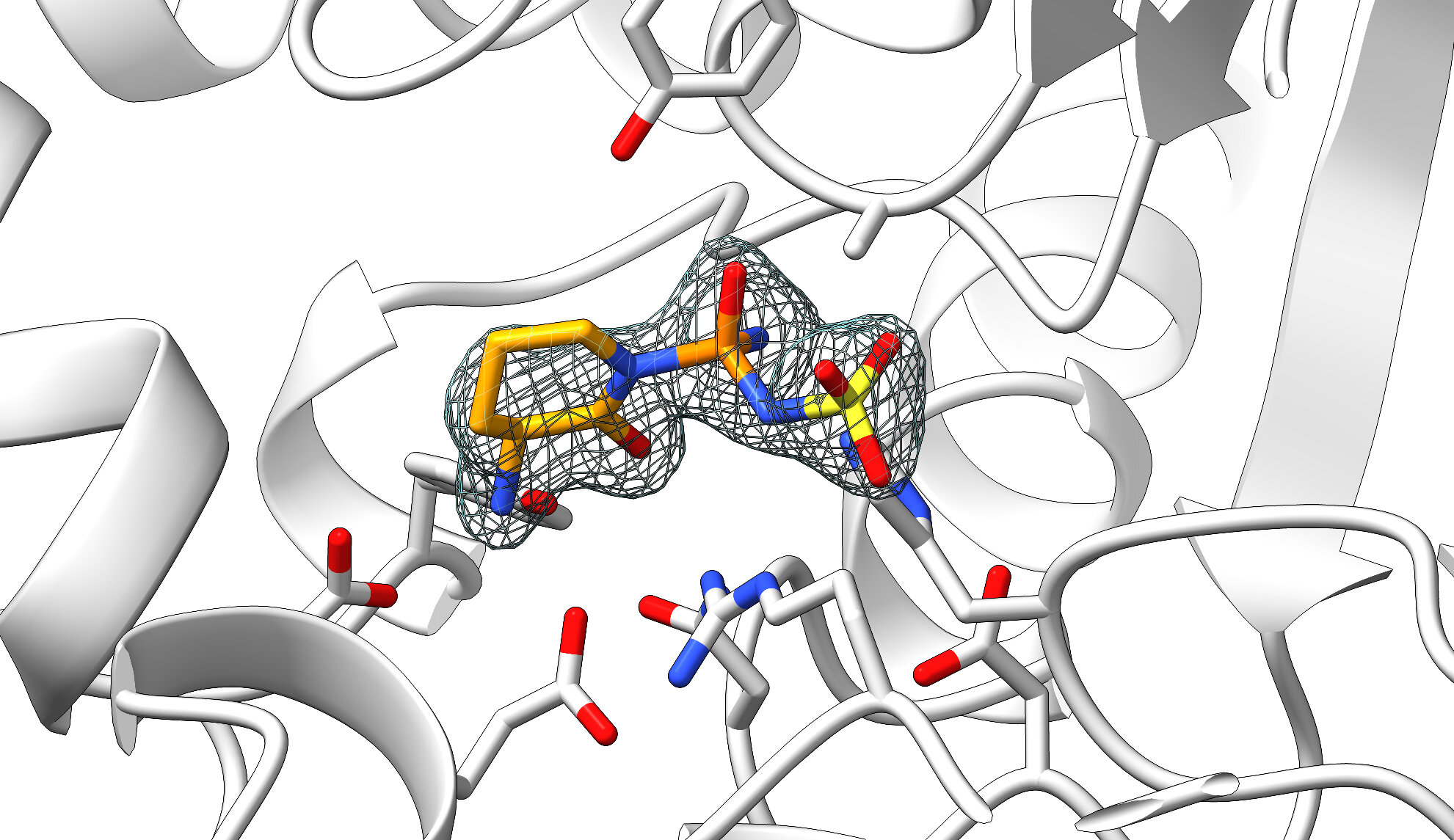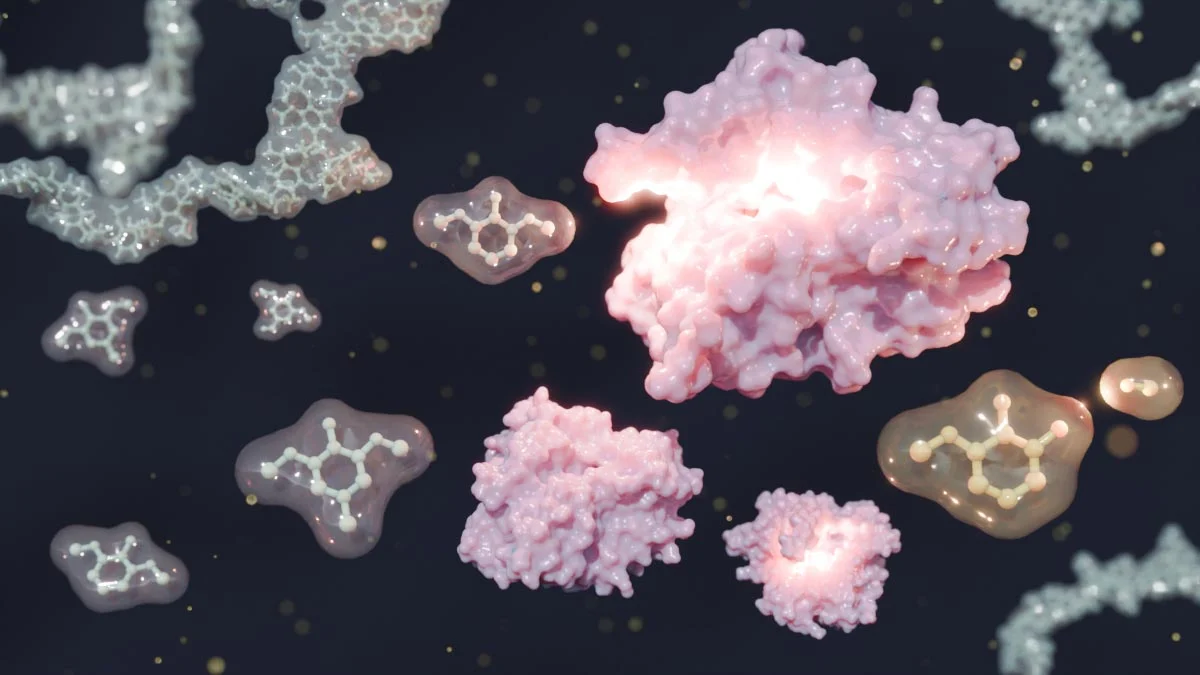Sulphostin interacts with the S730A-DPP9 mutant Credit: ZMB/ AG Kaiser
What Are These New Enzyme Inhibitors?
The heart of this discovery lies in targeting dipeptidyl peptidases 8 and 9 (DPP8/9), enzymes involved in inflammatory responses and cell survival. These enzymes play pivotal roles in the development of cancers and chronic inflammatory diseases like rheumatoid arthritis.
UDE researchers focused on modifying Sulphostin, a natural enzyme inhibitor known to affect DPP4. By altering its chemical structure, they created a new class of molecules—N-phosphonopiperidones. These molecules are designed to latch onto DPP8/9 with unparalleled precision, effectively blocking their activity. Think of it as using a specially designed key to lock a door, preventing any unwanted guests (disease-causing cells) from entering.
Unlike previous inhibitors that could interfere with other essential biological processes, the UDE team’s innovation minimizes these off-target effects, reducing the likelihood of side effects.
How Could These Inhibitors Revolutionize Treatment?
Cancer treatments often involve toxic therapies that kill both diseased and healthy cells, leading to harsh side effects. Similarly, inflammatory diseases can be difficult to manage without harming the body’s immune system. The targeted enzyme inhibitors developed by UDE promise a much more refined approach. By focusing precisely on DPP8/9, they can inhibit only the mechanisms causing disease, leaving healthy cells unharmed.
This could result in more effective and safer therapies for a variety of conditions, including cancers, autoimmune diseases, and chronic inflammation.
A Step Toward Precision Medicine
This breakthrough is part of a growing trend in medicine: precision or personalized treatment. The goal of precision medicine is to tailor treatments specifically to individual patients, ensuring they are more effective and have fewer side effects. By creating enzyme inhibitors that selectively target disease-causing enzymes, UDE researchers are contributing to the development of treatments that could be customized to a patient’s unique biological makeup.
These new inhibitors could be a game-changer in treating complex diseases, offering hope to patients who have not responded to traditional treatments.
What’s Next for This Research?
The road ahead for these enzyme inhibitors involves testing them in clinical trials to assess their safety and efficacy in humans. If successful, these inhibitors could be incorporated into the growing arsenal of precision medicines, giving doctors a powerful tool to fight diseases with minimal side effects.
Additionally, the research team at UDE plans to explore how these inhibitors might be applied to other enzymes involved in various diseases, further expanding the potential of this discovery.
How Can This Breakthrough Transform the Way We Treat Disease?
With the promise of more precise treatments, UDE’s enzyme inhibitors could change the future of cancer and inflammatory disease management. Could this new method of targeting specific enzymes pave the way for a more personalized approach to healthcare?
Stay tuned to DailySciTech.com as we continue to bring you updates on this fascinating development in the world of precision medicine.










